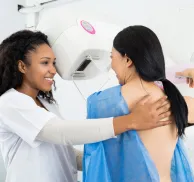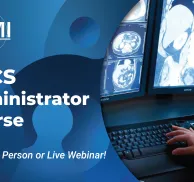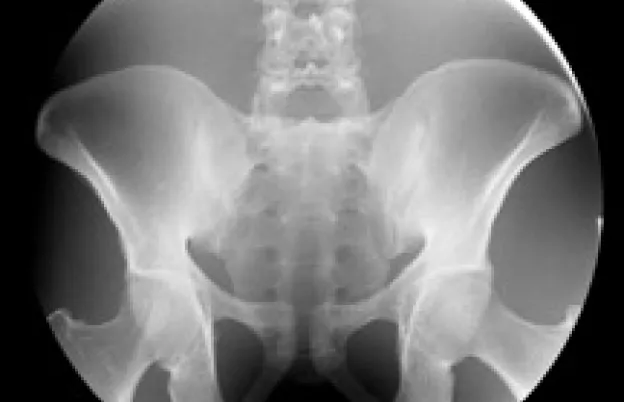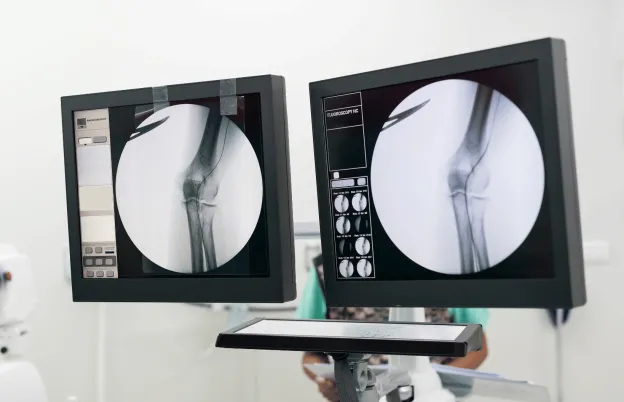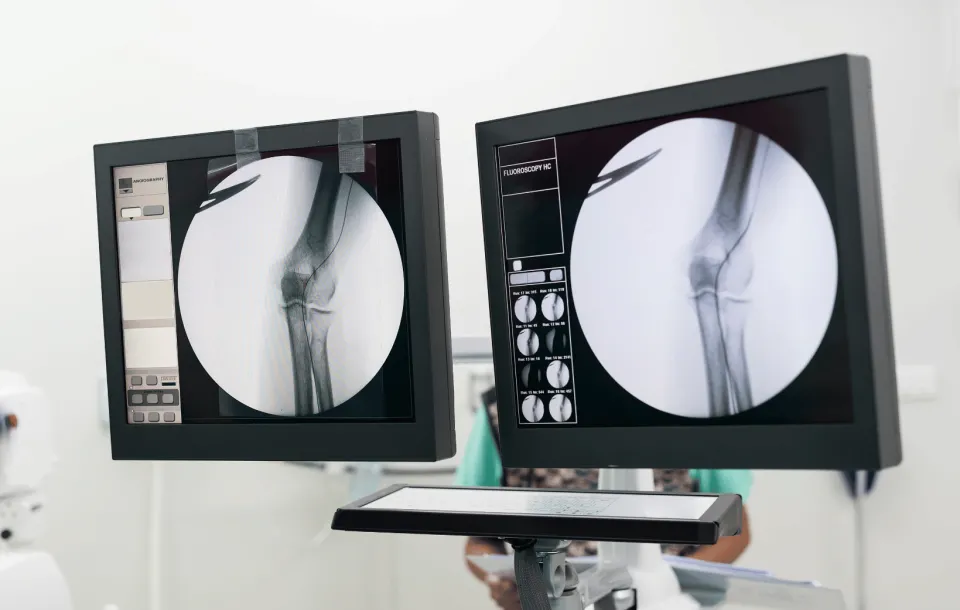
Digital and Fluoroscopic Radiation Protection
About this Program
Most digital radiography seminars discuss how the equipment works and the physics behind it. Our radiation safety training webinar is designed to give radiologic technologists practical knowledge to help them use their CR, DR, C-Arm and fluoroscopic equipment. With over 340 images and photos, this presentation will feel like a "hands-on" workshop in radiation safety training.
This radiation safety course webinar will confront the universal problems and concerns with digital radiography. You will learn why you should be using 15-20 kVp higher and about 1/3 the mAs required for film/screen. Little training exists to provide an understanding of the use of Exposure Index (EI) numbers and ranges in medical radiology. These will be discussed throughout this online radiation safety training webinar.
In addition, we will be discussing many radiation protection in fluoroscopy topics which have never been covered before. Topics covered are: the location of the least amount of scatter with the c-arm in the lateral position in OR, the difference in scatter protection between .25mm, .375mm and .50mm lead aprons, the location of scatter in a fluoro room in the AP position, and the Organization for Occupational Radiation Safety in Interventional Fluoroscopy (ORSIF).
Why is Radiation Protection Important?
Diagnostic medicine such as radiologic imaging is an invaluable tool in responsive and preventative healthcare. However, techniques such as X-ray imaging involve ionizing radiation that can deposit energy in human cells and cause tissue changes – patients as well as technologists can be exposed to this radiation during imaging procedures. This is where protective equipment and measures come in to minimize this potential exposure.
Specific to fluoroscopy, The Joint Commission (TJC) has standards that require healthcare organizations verify & document that people who use fluoroscopic equipment have completed initial training and ongoing assessment in the safe operation of the fluoroscopy equipment they will use.
ATTENTION CALIFORNIA CRTS
This radiation safety training webinar satisfies your CE requirements for:
- 4 of the 24 X-ray CEs in digital radiography (required for all CRTs)
- 4 of the 24 CEs in radiation safety for the clinical use of fluoroscopy (for fluoroscopy permit holders)
For more information on X-ray Continuing Education Credits (CEC), visit the California Department of Health website.
Educational Objectives
At the completion of this webinar, attendees will be able to:
- Select appropriate technical factors to optimize acquiring a diagnostic image, consistent with ALARA
- Describe at least three different ways to critique a digital image
- Identify what is needed to use a technique chart for digital systems
- Describe why a Ferlic Filter is beneficial on a cross-table lateral hip view
- Explain why Off Focus radiation shielding your patient is so important
- Outline the legal implications of not marking images, post processing collimation and changing algorithms
- Describe the areas of least radiation using the c-arm in OR for a lateral hip
- Identify the type of lead apron that offers the best protection in fluoroscopy
- Review the location of scatter radiation for an AP patient using a fluoro room
- Recognize the importance of ORSIF (Organization for Occupational Radiation Safety in Interventional Fluoroscopy)
Schedule
What this course will cover
AM Session |
Digital Radiography Part 1
|
BreakDigital Radiography Part 1
Lunch Break |
PM Session |
Radiation Protection Experiments (and Sternums)
|
BreakFluoroscopic Radiation Protection
Putting it all Together
|
Audience
Who should attend?
- Radiologic Technologists
- Health Physicists
- Students
- Medical Imaging Specialists
- Educators
- Vendor Personnel
Program Faculty
Meet your presenter(s)

Ron Gilbert
MS, BSRS, RT(R), CIIP
PACS Engineer, Enterprise Imaging and Informatics
11 Hospital Locations
WellStar Healthcare System
Atlanta, GA
Credits
Accredited training programs
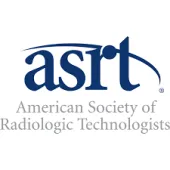
ASRT Category A
This program provides 8 hour(s) of Category A continuing education credit for radiologic technologists approved by ASRT and recognized by the ARRT® and various licensure states. Category A credit is also recognized for CE credit in Canada. You must attend the entire program to receive your certificate of completion.
Tuition

| Audience | Price | Early Price | Member Price | Member Early Price |
|---|---|---|---|---|
| Technologist | $199.00 | $189.00 | $179.00 | $170.00 |
Early Pricing Guidelines
Qualifying 'Early' registrations must be made at least 4 days in advance for the program.
Cancellation Policy
Seminars/Webinars 8 hours of credit or more
Refunds, minus a $30 processing fee, will be granted for cancellations received at least 3 days prior to the program. Cancellations received within 3 days of the program will receive a credit toward a future MTMI program, minus the $30 processing fee. No refunds will be made after the program starts. MTMI reserves the right to cancel any scheduled program because of low advance registration or other reasons. MTMI’s liability is limited to a refund of any program tuition paid. MTMI recommends that attendees use refundable airline tickets. In case of cancellation of a program for any reason, MTMI is not responsible for travel costs incurred by attendees including non-refundable airline tickets. When offered, WEBINAR ATTENDEES that cannot log in due to unsolvable technical issues beyond their control will be eligible for a full refund.
